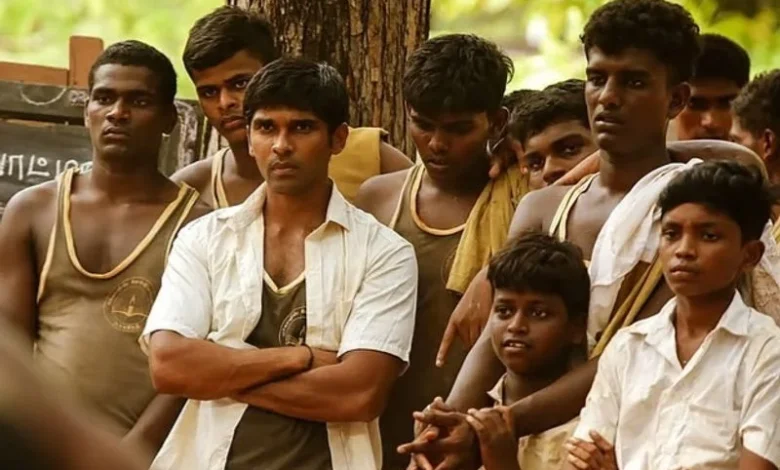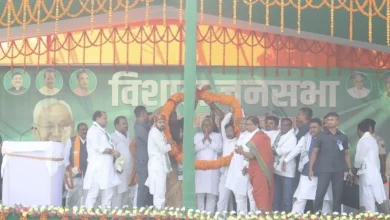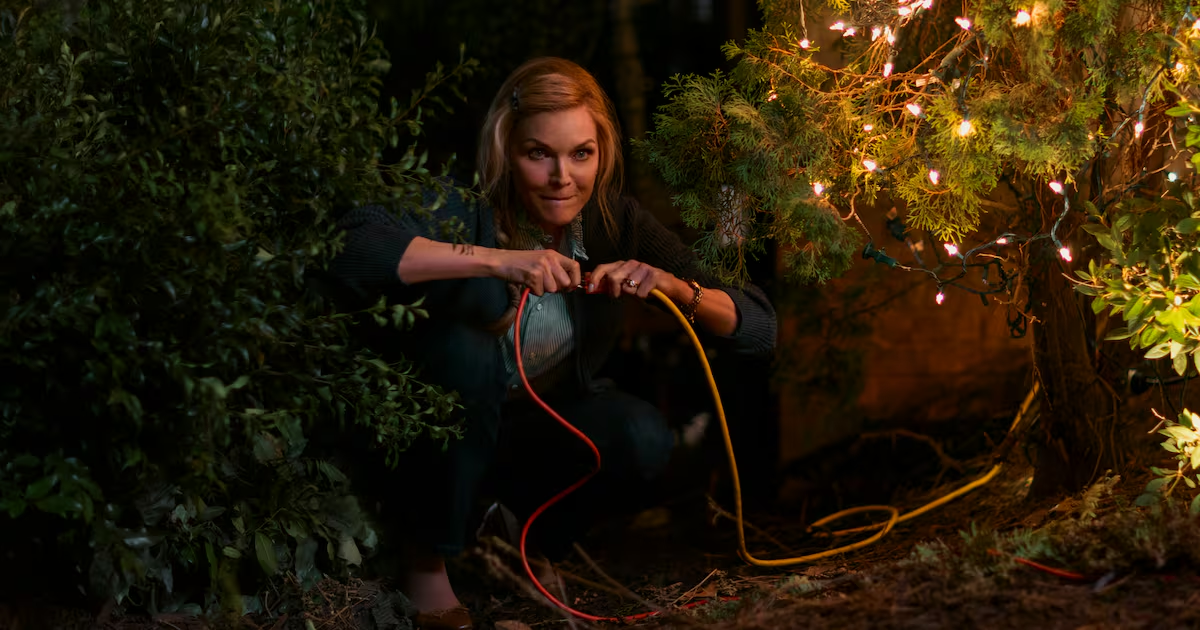‘Bison Kaalamaadan’: Kabaddi star’s script of grit

Tamil director Mari Selvaraj brings a powerful sports drama inspired by the life of Manathi Ganesan, a former Indian kabaddi player. Kittan Velusamy is the fiery underdog at the centre of the story. The opening quickly pulls you into his difficult world as his father urges him to give up the sport, fearing it will only bring danger.
“Swear you’ll never play kabaddi again!” he pleads, as tension builds between them. But Kittan isn’t someone who gives in. He is like a bull breaking free, running straight into a life filled with struggle and resistance. This is the core of the film, where kabaddi becomes more than a game. It becomes a lifeline, a fight and a flicker of hope.
Set in the 1990s’ rural Tamil Nadu, the film traces the arduous journey of Kittayya or Kittan (Dhruv Vikram), a spirited youngster from a marginalised community with an invincible passion for kabaddi. Kittayya’s father, Velusamy (Pasupathy), wary of the dangers lying ahead for his son, tries to steer him away from the sport, haunted by memories of relentless caste-based oppression that has shadowed their family for generations.
Village life is turbulent, dominated by powerful landlords and simmering rivalries, with Kittayya’s ambitions repeatedly pummelled by systemic violence and bigotry. He finds an unlikely mentor in a kabaddi coach who channels his anger into skill, turning him into a force on the field.
With his sister Raaji as his emotional anchor, Kittayya’s battles range from brutal gang feuds to exclusion from his local team, and even public humiliation. Against all odds, his resilience transforms him into a symbol of hope and defiance.
The drama crescendos as Kittayya rises from the fringes, overcoming trauma, injuries and prejudice, to eventually don the national colours at the Asian Games, cementing his legend as “Bison”.
Dhruv Vikram slips into the skin of Kittayya, blending quiet rage and bristling determination with the kind of physicality that would make most kabaddi players question their training regimen.
The supporting cast, including Rajisha Vijayan and Anupama Parameswaran, delivers sincerely. Selvaraj mixes the excitement of a sports drama with a sharp look at social injustice. The kabaddi scenes are sweaty, rough and full of urgency, making you feel like you’re right in the middle of the fight.
Though Selvaraj doesn’t glamourise violence, its frequency and intensity is such that it may overwhelm viewers and occasionally dilute the core message.
Another notable downside is the film’s pacing, especially in the second half, where scenes tend to drag and feel repetitive. The romantic angles add little and could have been trimmed for tighter storytelling. The runtime can feel like a marathon, especially in the second half where narrative momentum succumbs to repetition and predictability creeps in. Nonetheless, the movie’s heart lies in its tribute to kabaddi and the resilience required to overcome caste barriers, making it a meaningful watch despite its flaws.
In summary, ‘Bison Kaalamaadan’ stands out as a poignant social drama wrapped in the energy of a sports film. Dhruv’s committed portrayal and Selvaraj’s bold direction bring to life a story about fighting not just opponents, but centuries-old social divides.
This film reminds us that kabaddi is more than a sport. It is a symbol of resistance and hope. Despite the excessive violence and occasional pacing issues, the movie’s ode to kabaddi and unwavering spirit linger long after the final whistle. So, get ready to experience the raw power of the bison charging through adversity.





